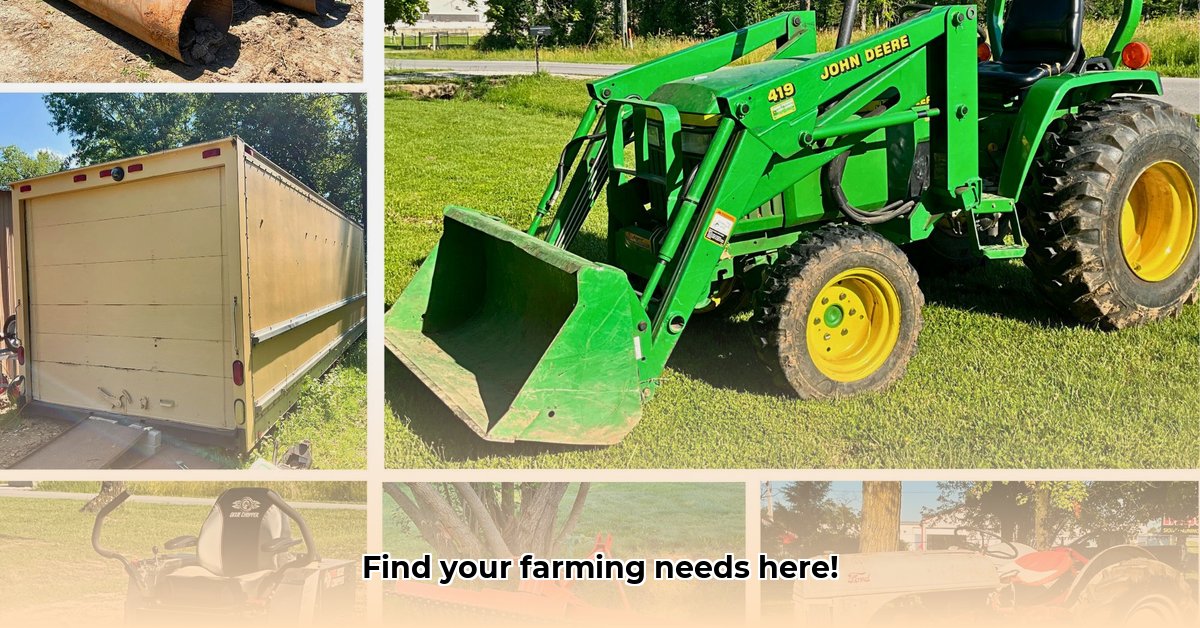
Finding the right equipment and supplies for your farm or garden is crucial. Tractor Supply Company (TSC) in Millersburg, Ohio serves as a central hub for many local farmers and gardeners. For examples of other TSC locations and their practices, see this example. However, beyond convenience, how does TSC contribute to—or detract from—the sustainability of the local agricultural landscape? This investigation examines TSC's role in Millersburg, analyzing its offerings, sustainability efforts, and the potential for greater collaboration toward a more environmentally conscious future.
Tractor Supply Millersburg: Products and Local Context
TSC Millersburg offers an extensive range of products, from animal feed and fencing to irrigation systems and seeds. This broad selection caters to diverse needs, serving both small-scale gardeners and larger-scale farms. However, the sheer volume of products doesn't automatically translate to a commitment to sustainable agriculture. The question remains: how well do these offerings align with the growing demand for environmentally friendly farming practices in Millersburg?
Sustainability Assessment: A Critical Look
While TSC provides vital supplies, its commitment to sustainability requires closer scrutiny. Currently, there's a lack of readily available, detailed information regarding their sustainability initiatives. Critical areas needing improvement include:
Supply Chain Transparency: The origin of TSC’s products and their environmental impact during transportation remain largely unclear. Lack of information on sourcing from ethical and sustainable suppliers hinders a comprehensive sustainability assessment. A detailed analysis of the entire supply chain is essential.
Packaging: The environmental impact of TSC's packaging requires further investigation. Information regarding the use of recycled materials and the existence of a robust recycling program is currently unavailable.
Sustainable Product Promotion: TSC's efforts to promote explicitly sustainable products—such as organic seeds or eco-friendly fertilizers—need increased transparency. A lack of clear marketing of these options limits consumer awareness and choice.
This absence of readily accessible data on these elements prevents a complete evaluation of TSC's overall sustainability performance. Further investigation by both TSC and independent researchers is crucial.
Stakeholder Perspectives: Shared Responsibility
Addressing the sustainability challenges within Millersburg's agricultural sector requires a collaborative approach involving various stakeholders:
Tractor Supply Company: TSC holds immense leverage to drive change. Proactive steps, such as enhancing supply chain transparency through detailed reporting, investing in more sustainable packaging, and actively promoting eco-friendly products, are crucial. A publicly available sustainability report would significantly enhance trust and transparency.
Farmers and Gardeners: Farming practices significantly influence the environment. Adopting sustainable methods—crop rotation, reduced pesticide use, etc.—coupled with conscious purchasing decisions at TSC, will have a cumulative positive impact.
The Millersburg Community: Local organizations can play a pivotal role in raising awareness of sustainable farming through community events, educational programs, and advocacy for environmentally conscious policies.
Consumers: Consumers' choices directly influence market demands. By actively seeking transparent information on product sourcing and environmental impact from TSC, and by favoring sustainable products, they can exert significant pressure for change.
Recommendations and Call to Action
To build a more sustainable agricultural future in Millersburg, specific actions are necessary:
TSC Sustainability Audit: TSC should conduct and publicly release a comprehensive audit of its entire supply chain, evaluating environmental impacts at each stage. This should include clear targets and timelines for improvement in areas like packaging and transportation.
Sustainable Product Promotion: TSC should actively showcase and prioritize eco-friendly products, providing clear labeling and information to help consumers make informed decisions.
Community Engagement: TSC should partner with local organizations to host educational workshops and events focused on sustainable farming practices.
Consumer Advocacy: Millersburg residents should engage directly with TSC, voicing their concerns and demands for greater transparency and sustainable product options. Supporting local farmers committed to sustainable methods underscores this commitment.
The path to a more sustainable agricultural community in Millersburg hinges on enhanced transparency from Tractor Supply and the collaborative efforts of all stakeholders. Open dialogue, shared responsibility, and a collective commitment to a greener future are essential.